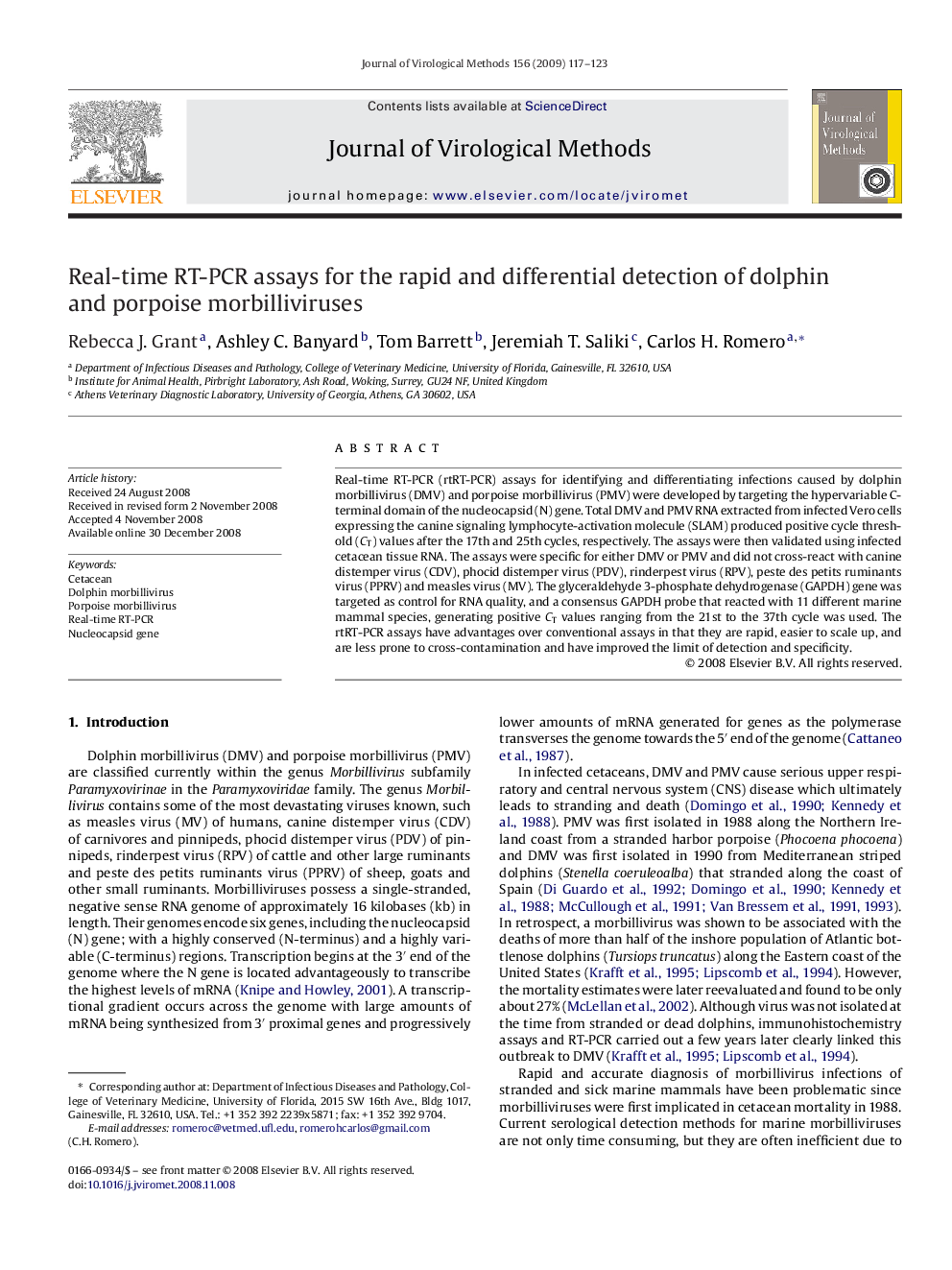| Article ID | Journal | Published Year | Pages | File Type |
|---|---|---|---|---|
| 3407751 | Journal of Virological Methods | 2009 | 7 Pages |
Real-time RT-PCR (rtRT-PCR) assays for identifying and differentiating infections caused by dolphin morbillivirus (DMV) and porpoise morbillivirus (PMV) were developed by targeting the hypervariable C-terminal domain of the nucleocapsid (N) gene. Total DMV and PMV RNA extracted from infected Vero cells expressing the canine signaling lymphocyte-activation molecule (SLAM) produced positive cycle threshold (CT) values after the 17th and 25th cycles, respectively. The assays were then validated using infected cetacean tissue RNA. The assays were specific for either DMV or PMV and did not cross-react with canine distemper virus (CDV), phocid distemper virus (PDV), rinderpest virus (RPV), peste des petits ruminants virus (PPRV) and measles virus (MV). The glyceraldehyde 3-phosphate dehydrogenase (GAPDH) gene was targeted as control for RNA quality, and a consensus GAPDH probe that reacted with 11 different marine mammal species, generating positive CT values ranging from the 21st to the 37th cycle was used. The rtRT-PCR assays have advantages over conventional assays in that they are rapid, easier to scale up, and are less prone to cross-contamination and have improved the limit of detection and specificity.
